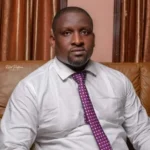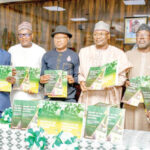The data of newly registered voters released by the Independent National Electoral Commission (INEC) is, to say the least, surprisingly low for a Continuous Voters Registration exercise that kicked off in June 2021. According to the commission, as at January 14, 2022, over 2.5 million Nigerians completed new registrations to join the voter register ahead of the 2023 general elections. However, over one million of these new registrations which make up 44.6% have been declared as invalid. This means a total of 1,390,519 Nigerians are set to be disenfranchised for avoidable reasons.
This is really discouraging considering the massive publicity and effort by interest groups to mobilise citizens to participate in the process. Also, the commencement of the exercise was met with enthusiasm as Nigerians thronged registration centres and online portals to get registered to participate in the upcoming all-important 2023 general elections.
- Kano civil servant resigns, joins gov’ship race
- Oni chides PDP candidate for calling him nomadic politician
The major cause of invalid voter registration has to do with cases of duplications where citizens who are already on the voter register decide, for one reason or the other, to undergo the process again. For instance, citizens who probably lost or damaged their Permanent Voters Card (PVC) simply registered as new voters instead of applying for replacement of the PVC. Another instance has to do with Nigerians who relocated to other parts of the country and needed to transfer their voter registration to their new location but decided to register as new voters. Others who had their Temporary Voters Card (TVC) decided to register newly because they could not collect their PVCs where they previously registered while others could not find their records on the INEC portal even when they tried to retrieve previous registration.
While the issue of double registration is not new to the CVR process in Nigeria, it is increasingly becoming an issue that must be rectified to forestall systematic disenfranchisement of Nigerians even before the election day.
Despite introducing the Automated Biometric Identification System (ABIS) and Automated Fingerprint Identification System (AFIS), it is ironic that the more comprehensive and robust system involving not just fingerprint identification, but also the facial biometric recognition, could not be integrated to flag duplication during the online pre-registration process, or during the physical registration at various INEC offices nationwide.
Again, it is also confusing that the Automated Identification Systems deployed to clean up data basically deletes the new and updated registration information of citizens rather than using it to validate the old and possibly obsolete information existing in the system.
With the entire process ending on June 30, Nigeria risks not adding the majority of its eligible citizens to the voters register.
There are communication channels like publication of affected Nigerians on websites and how to rectify the situations. Also, the commission has access to registrants’ emails and phone numbers at their disposal and could reach out to affected citizens in a bid to update their registration.
Better still, the commission has an opportunity to review duplicate registrations while keeping the most recent and updated information to enable citizens participation in the upcoming general elections. Also, Nigerians have recommended merging the voters’ register with the national identification number (NIN) because it has provided a platform for creating a national database of Nigerians.
At this point, it is time for political parties, media, civil society organisations and the general public to further intensify voter education especially around the implications of invalid registration while the commission ultimately should devise strategic means to eradicate or minimise the impact of the current invalid registrations.
Moshood Isah is the Media Officer of Yiaga Africa

 Join Daily Trust WhatsApp Community For Quick Access To News and Happenings Around You.
Join Daily Trust WhatsApp Community For Quick Access To News and Happenings Around You.


